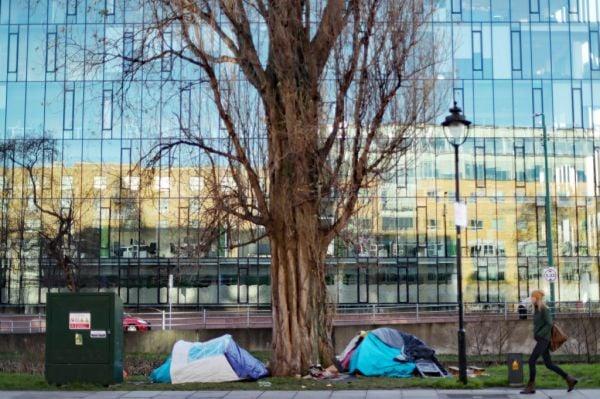Urgent action is needed to tackle the severe housing shortage in Ireland, a leading charity has warned, following a report that over 14,000 people are now in emergency accommodation.
New monthly homelessness statistics reveal that more than 4,000 children are among those seeking permanent homes. This marks a 14% rise in the number of homeless people housed in emergency accommodation over the last year.
David Carroll, head of the homelessness charity Depaul, emphasized the need for “emergency action” from the government. He noted that Depaul has been consistently advocating for increased housing targets, suggesting the current goal of 33,000 homes by 2025 should be raised to 50,000 homes.

Focus Ireland, another charity, echoed this sentiment, urging the government to implement key recommendations from a recent Housing Commission report.
Homelessness Statistics: A Growing Crisis
The figures, published by the Department of Housing, only account for those housed in emergency accommodation and exclude rough sleepers, individuals in domestic violence shelters, and asylum seekers.
READ ALSO: Building Material Cost Surge of Over 130% Worsens Nigeria’s Housing Crisis
The data shows a steady increase in emergency accommodation numbers since 2014. As of April, 14,009 people were seeking accommodation, up 143 from March. Additionally, 1,996 families were in emergency accommodation, 15 more than the previous month.
In Dublin alone, the number of people in emergency accommodation has reached 10,216. Catherine Kenny, CEO of the Dublin Simon Community Centre, attributes the increase to fewer people exiting emergency accommodation, causing congestion in an already strained housing system.
Government Response
Irish Minister for Housing, Darragh O’Brien, expressed determination to address the homelessness issue, stating that increasing housing supply “is the key to resolving the current crisis and it is the absolute focus of the government.”
The escalating figures underscore the urgent need for effective measures to combat homelessness and provide adequate housing for all.



